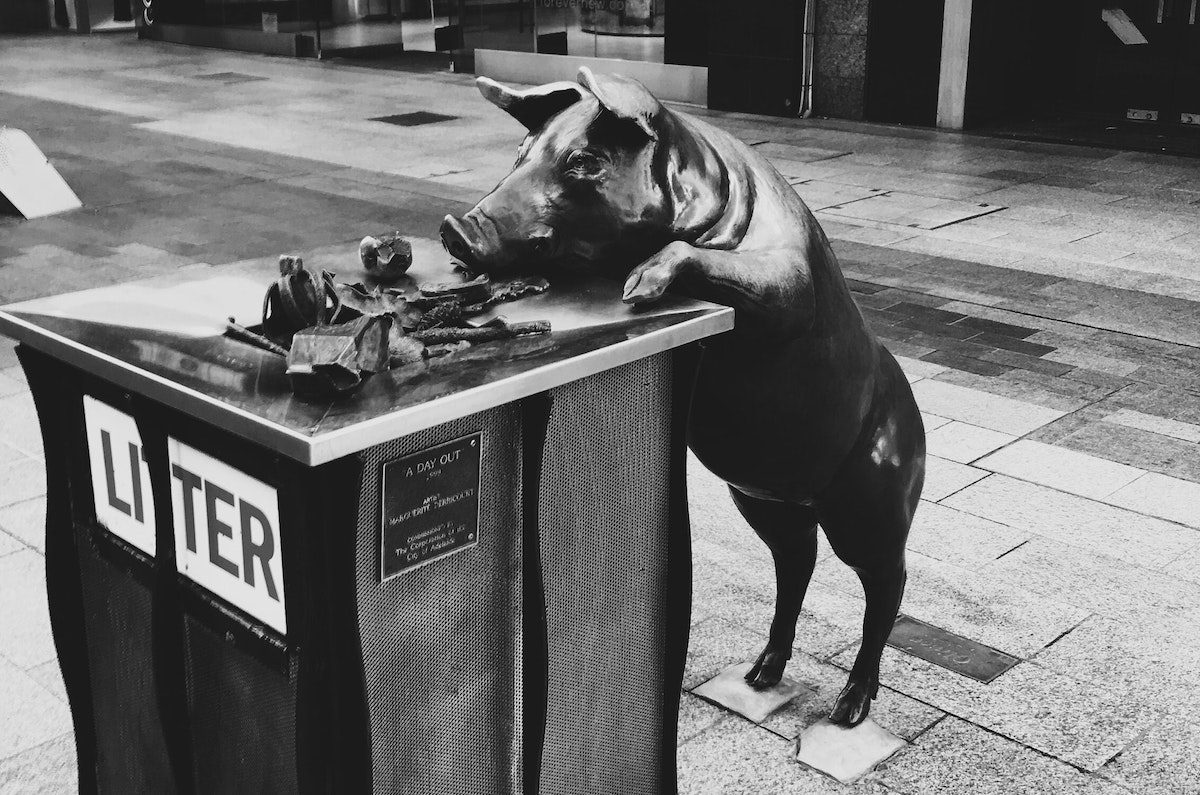
Professor Roberta Crouch
Dr Nathan Gray
China is serious about imposing substantial trade penalties on Australian industry – evident by a Chinese Government crackdown on Australian coal imports, an anti-dumping ruling against Australian barley exporters and deregistration of four Australian beef exporters.
But the most telling effect on South Australia will come from a possible anti-dumping finding against Australian wine exporters.
If China’s anti-dumping investigation returns a guilty verdict at some stage in the next nine months, it will have substantial impact on South Australia’s wine export performance, which make up around 30 percent of SA’s total exports to China, and just under 10 percent of SA’s global exports.
Even without a guilty verdict, great damage can be done. Disruption through accusation – known as ‘grey zone influence’ – could influence Chinese businesses to review their wine import portfolios, which could result in significant change before any decision is handed down.
With local wine exports to China having grown from $330 million in 2014 to more than $1.2 billion in 2019, there is much at stake.
What is the anti-dumping investigation?
On 18 August, the Chinese Ministry of Commerce issued Announcement No. 34 of 2020, deciding to conduct anti-dumping investigations on wines imported from Australia in containers of two litres or less, between 2015-2019. This investigation is scheduled to be completed before 18 August 2021, although it can be extended to 18 February 2022 under special circumstances.
Dumping generally occurs when a company exports a product at a price lower than the price charged in the country of manufacture. In this instance, it would indicate that a bottle of wine is available for sale (at wholesale normally) at a lower price than in the Australian market.
Compounding the charge of breaching anti-dumping laws is the assertion by China that perceived subsidies may have been received by the sector that facilitates exporting wine (or any other goods) to China at a substantially lower price – suggesting a price lower than normally achieved without the subsidy. Subsidisation is a financial benefit that an exporter receives from a government – the subject of the recent announcement on 21 September 2020, specific to the recent $50 million dollar grant scheme and support package.
It is likely to be argued by the Chinese Government that the Wine Equalisation Tax (WET) which is a 29 percent tax applied to domestic wholesales (but not to exported wine), is in effect an additional state subsidy that effectively lowers the export price for producers of Australian wine, as compared to the regular sales price for the same wines in the Australian market.
If Australia is deemed guilty of breaching anti-dumping laws, China can recommend countervailing measures if it is also found as part of the judgement that material injury to the Chinese wine industry has been caused by dumped or subsidised wine imports. Such material injury can include: loss of sales, profits, market share and productivity, negative impacts to prices, cashflow, inventories and employment, and injury must be greater than what normally occurs in the normal ebb and flow of business.
China’s anti-dumping investigation will compare prices in Australia for the same wines exported to China and determine if they have been sold to China at lower than the equivalent cost domestically. Importantly, this does not have to be found in all wine categories or from every exporting brand. If China can identify price differences and demonstrate that there has been an injury to Chinese domestic winemakers, the Australian wine industry is in trouble.
Who are our wine competitors in China, and should we be worried?
Australia shouldn’t be naive enough to believe this will all blow over as a bit of ‘sabre rattling’, because there is a firm belief in the sector and government that China needs our wine. Every wine exporter in the world is actively competing to sell into this market, and many of Australia’s competitors also make high quality wines, often in locations where production costs and distribution costs are significantly lower.
Australian exporters have made substantial inroads in China, both in volume sold but also at higher price points for premium wine, but wines from Chile, Italy and Spain also enjoy strong support in China. Australian wine exports to China exceeded those from France for the first time in 2019, but research confirms that a perceived quality gap still exists between Australian fine wine and wines from France or Italy – not only in China but in most of Australia’s important export markets. Therefore, a charge of ‘dumping’ will reinforce strong perceptions still held in many foreign markets that Australia produces good value or mid-range wines, as compared to high quality wines that deserve a higher price.
Adding to these pressures is a vast and strongly supported Chinese domestic wine industry. The quality of Chinese wine has been consistently improving in quality, with many homegrown brands collaborating with Australian and European winemakers to introduce world-class grapegrowing and winemaking techniques. China has the second largest area of vineyard plantings in the world, after Spain, with 875,000 hectares of vineyards. This is six times larger than Australia at 146,000 hectares. China is also the 10th largest global wine producer, not far behind Australia in 7th position. Hence it would be a mistake to underestimate China’s domestic industry and its ability to tap into Chinese nationalism by encouraging wine buyers to favour domestic over imported wines – especially from countries promoted as trading unfairly with China.
What will be the impact from an export ban?
Early this year, Australia’s wine industry was specifically warned by the Chinese Ambassador about the risk to Australian export industries the Australian Government continued to pursue an independent review into the origin of the Covid-19 pandemic. This action is no idle threat. Since a US trade war with China began in 2016, the tariff on US wine has gone from 14 percent to now 106 percent. Consequently, US exports of wine to China are comparatively small, and still declining.
What must the government and industry do to mitigate these risks?
South Australia’s wine industry has become overly focused on wine exports to China, arguably at the expense of maintaining and enhancing export performance in traditional markets such as USA, UK and Canada. Export value in these three markets have been declining through the past five years, which needs to addressed if Australia’s wine industry is to thrive without depending on the China market.
Current negotiations between the UK and EU may lead to opportunities for New World winemakers if European wines become more expensive. Moreover, a free trade agreement with Korea signals a significant new wine export opportunity, along with growing Australian exports in developing Asian wine markets, such as Japan, Vietnam, Singapore, Malaysia and Thailand.
Australia’s wine industry and governments therefore need to develop a plan to diversify its export focus, or else the financial impact to the South Australian wine industry could be catastrophic. Such a plan must ask:
- What strategies are the South Australian and Federal Governments developing to offset the substantial economic impacts that any export ban would trigger?
- What changes need to occur within the wine industry to sustain export markets and mitigate the effects of an anti-dumping charge?
- Is the wine industry resilient enough and possess the leadership to meet such challenges?
- Where will the expertise to steer change come from, especially for SME’s and small operators in the sector?
Australian wineries must prepare for a future that involves much less reliance on the Chinese market. Preparation and risk mitigation are essential, but the good news is that plenty of export markets exist for wine sales to develop.
Professor Roberta Crouch is the Director of the MBA and International Wine Business and Tourism programs at the College of Business Government and Law at Flinders University.
Dr Nathan Gray is Managing Partner of AsiaAustralis, an Adelaide based Strategic Management Advisory firm that specialises in international trade, export development, and economic development.













Recent Comments